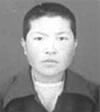
Ngawang Sangdrol
“Ngawang Sangdrol’s release is a significant victory for human rights campaigners worldwide,” said John Ackerly, President of the International Campaign for Tibet. “However, as welcome as this and other recent releases are, President Bush must not accept these few, high profile releases as any substitute for a sincere Chinese commitment to resolve the Tibet issue through dialogue with the Dalai Lama,” Ackerly said.
“In his meeting with President Jiang next week, President Bush must push for a fundamental shift in Chinese policy toward Tibet,” Ackerly continued. “Ultimately, it is dialogue with the Dalai Lama will best serve the interests of the Tibetan and Chinese peoples.”
Sangdrol’s release comes a week before Chinese President Jiang Zemin is to meet Bush in Crawford, Texas, and is part of a recent campaign by China to change the image of its rule in Tibet, which has been marked by decades of brutality.
Sources in India said today that Sangdrol’s relatives there had been anticipating her release but were deeply concerned about her health. Though she has reportedly been in poor health, Sangdrol was released on parole for good behavior, not on medical parole as several other prominent prisoners were.
When asked about why she was released on good behavior instead of medical parole, recently-released Takna Jigme Sangpo, Tibet’s longest-serving political prisoner, said that he believed the Chinese government is “trying to influence others – it doesn’t mean she changed her behavior or thoughts.”
In prison Sangdrol gained a reputation as a fearless advocate of Tibetan freedom. Born in 1977, she was first detained in 1987 at age 10 and again at age 13 when she spent nine months in detention without any formal charge. She was again detained in 1992 for peacefully demonstrating against Chinese rule. She has received significant international attention because her sentence has been extended several times.
Both Sangdrol and her late father, Namgyal Tashi, served overlapping terms from 1992 to 1999 in Drapchi prison, notorious for harsh treatment of prisoners, for separate demonstrations.
Lodi Gyari, Special Envoy of His Holiness the Dalai Lama, who was reached for comment said, “We welcome Ngawang Sangdrol’s release as she was one the cases we have been raising with the Chinese leadership at different levels in the recent past.” Gyari also said that he hopes Sangdrol will get a “thorough medical check-up and undergo treatment immediately, in China or wherever is necessary.”
Her case was taken up by the U.S. Congress, the French government, the European Parliament and many others. News of the release was announced this morning by John Kamm, of the Dui Hua Foundation.
In 1994, Sangdrol and 13 other nuns secretly recorded songs and poems in tribute to Tibet and the Dalai Lama. Sangdrol’s sentence was extended by six years after the recordings were smuggled out of prison.

